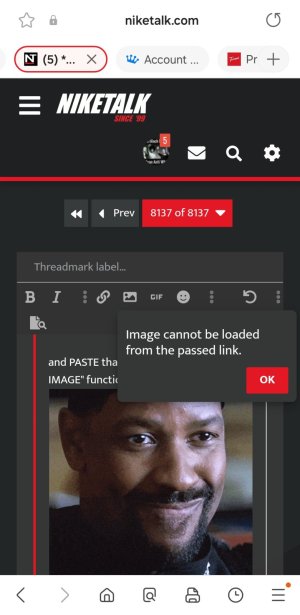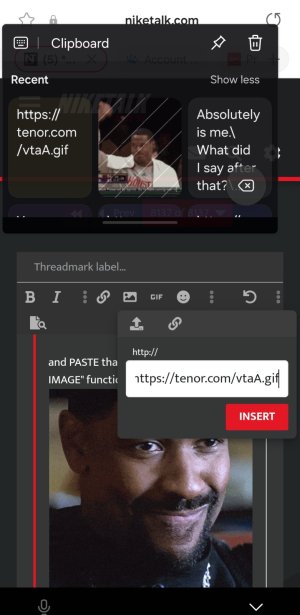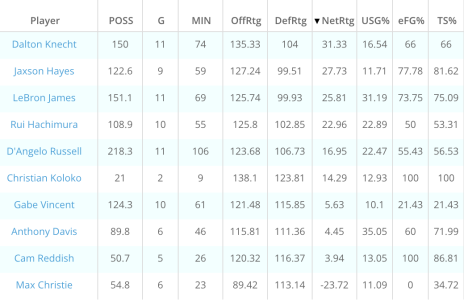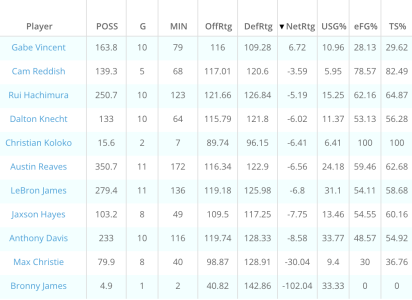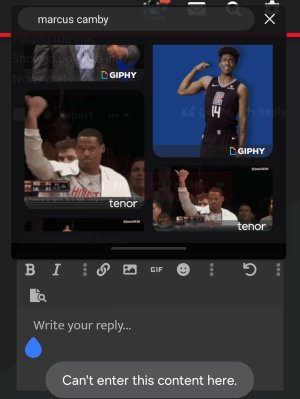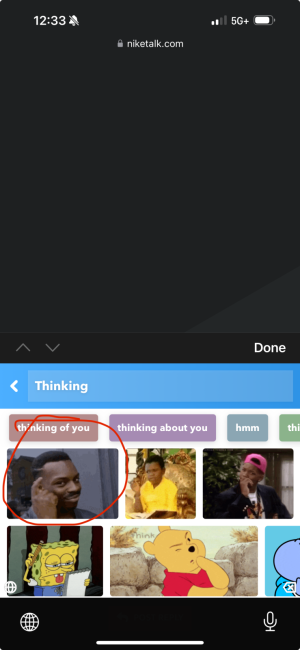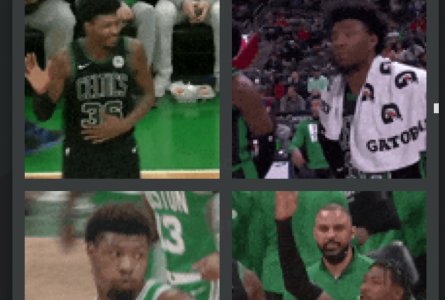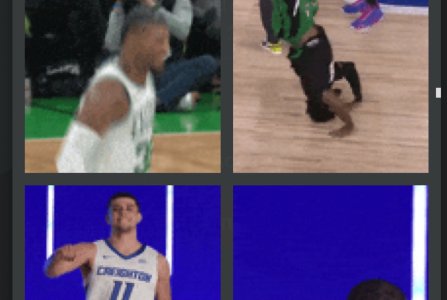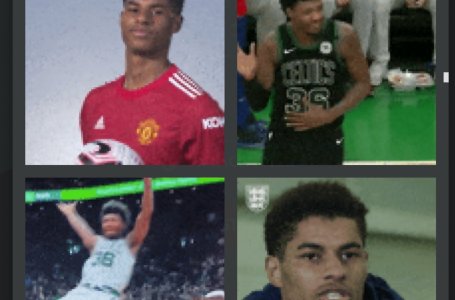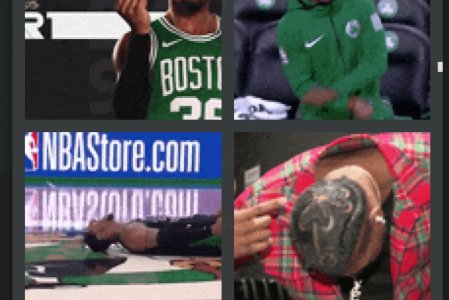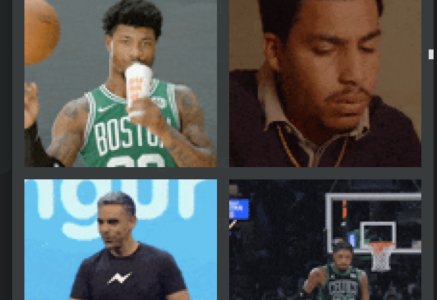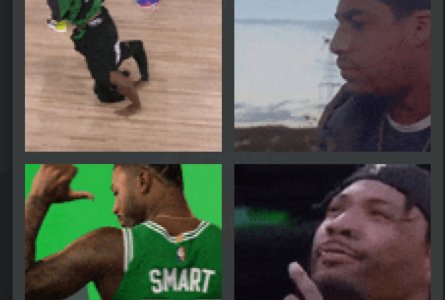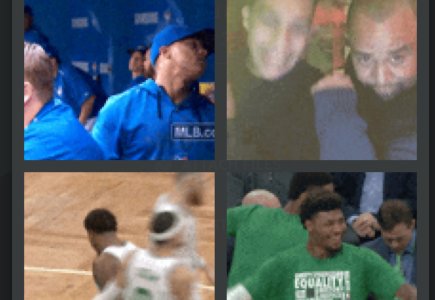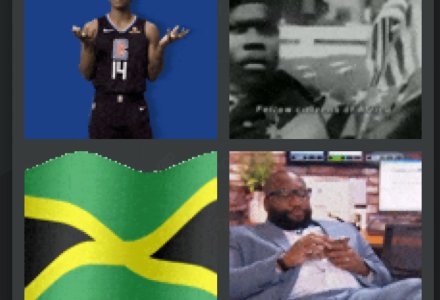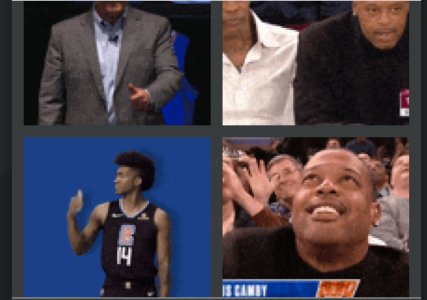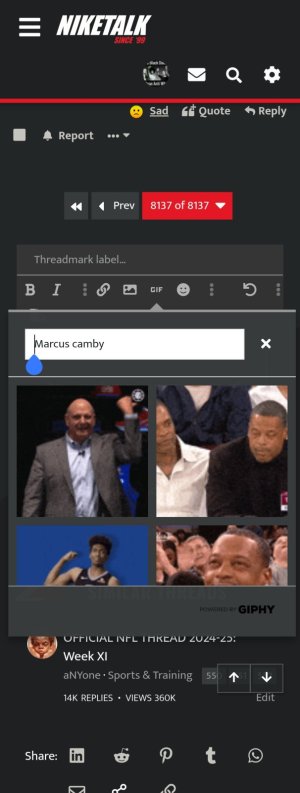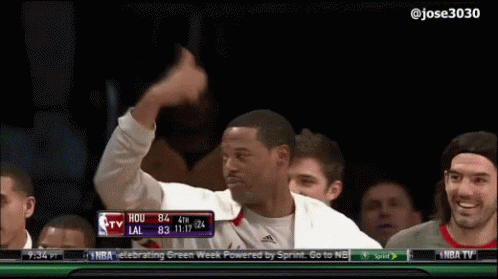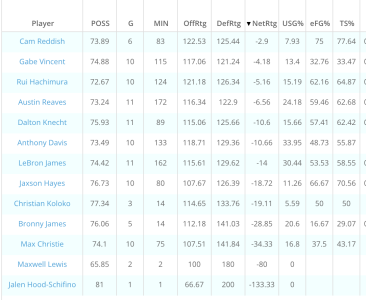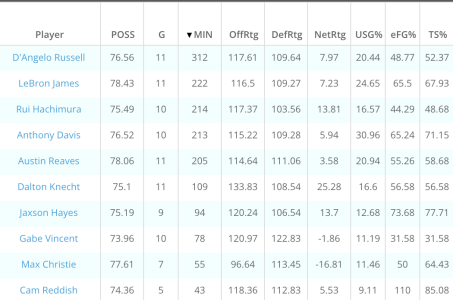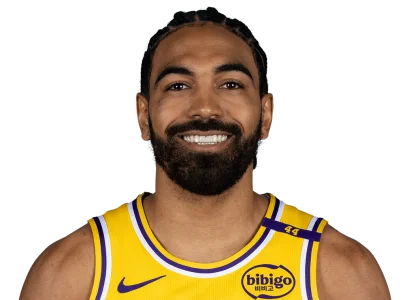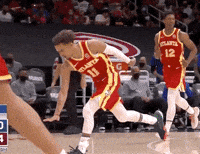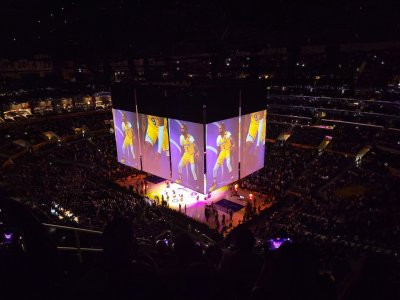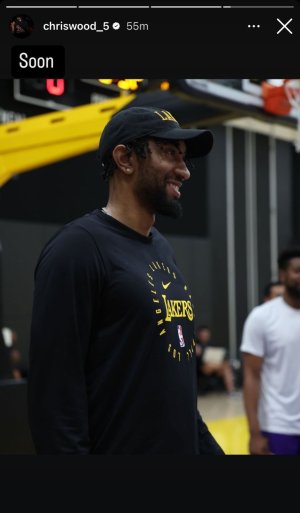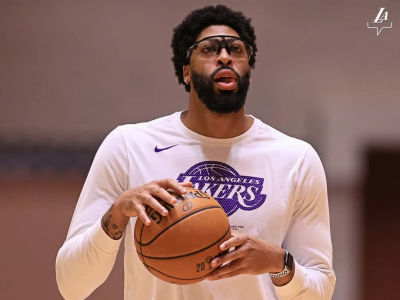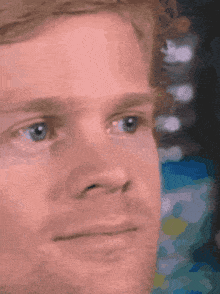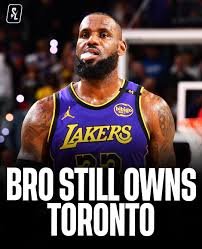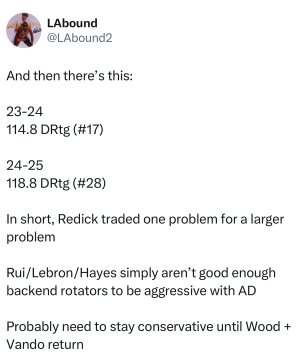Lakers offseason: From Dennis Schröder to Alex Caruso, the case for and against re-signing each free agent
The Lakers were eliminated from the postseason six weeks ago. Next season has already started for them. The NBA Draft is two weeks away. Free agency is a few days after that.
For the Lakers to properly cleanse their palate and retool their roster, they have some difficult decisions to make. That starts with their own free agents. There are many of them — as much as two-thirds of the roster, depending on player options (Montrezl Harrell) and non-guaranteed contracts (Alfonzo McKinnie).
As with almost any situation in the NBA, there are pros and cons to every choice they make. Here’s a look at the case for and against the Lakers re-signing or retaining each of their impending free agents.
Dennis Schröder
The case for: Dennis Schröder’s lightning-quick speed and finishing ability gave the Lakers the type of point-guard scoring option they haven’t had in decades. He arguably impressed more on the defensive end, where he pressured ballhandlers full court and welcomed the challenge of defending an opponent’s best perimeter threat in certain matchups. He was probably L.A.’s third-best player.
The reality is it’s impossible for the Lakers to replace Schröder with a similarly valued player. The difference between Schröder and a veteran’s minimum point guard is steep. Plus, the Lakers have two greater rotational needs for next season — an above-average 3-and-D wing and a better-fitting center — and spending their taxpayer midlevel exception on a point guard to replace Schröder would be an inefficient use of their limited resources (depending on which players are available, of course).
Even if the Lakers are forced into re-signing Schröder to an unpalatable contract, they’re in win-now mode, and he’s theoretically better than the alternative options. His market is also lower than he thinks it is, and there’s a chance the Lakers are able to retain him on a reasonable deal.
The case against: Last season showed that some of the growth Schröder displayed in Oklahoma City might have been a mirage. His 2-point percentage (decent) and 3-point percentage (subpar) declined and were nearly identical to his career averages. Other than foul-drawing, there wasn’t an area in which he improved in Los Angeles. If anything, his Thunder tenure confirmed that Schröder is best suited for a sixth man role, running a bench unit and closing games when it makes sense.
Schröder has been outspoken about his role, contract and value all season, which has caused some unnecessary attention and speculation. The Lakers were willing to move him at the trade deadline. There’s also the matter of fit: He’s a below-average shooter, and the Lakers need to fill out lineups around LeBron James and Anthony Davis with shooting and spacing. Schröder’s shot-pass decision-making tree trends more toward shooting than ideal from the position (especially considering he’s not an elite shooter). He’s a backend starting point guard or sixth man seeking All-Star-level money.
Alex Caruso
The case for: This one is rather straightforward: Alex Caruso is one of the best defensive guards in the league. He’s also one of the better hustle/energy/intangible guys in the league. His chemistry with James is invaluable and can’t be understated. Their lineup data over the past three seasons has been insane. Caruso has improved enough as a shooter, ballhandler and playmaker to make up for his lack of overall offensive impact. He fits on any team in the league as a third or fourth guard.
The case against: There isn’t much of a case against re-signing Caruso. He has health concerns — he was a close second to Davis in the imaginary statistic of trips back to the locker room — and a distinct ceiling to his offensive capabilities. He’s a solid shooter, but he’s not a great one, and defenses don’t respect him off the ball. That lends itself to cuts and offensive rebounds, but we’ve seen how important shooting and spacing are this postseason. There’s also the concern that he’s a candidate to be overpaid by a team that overvalues his skill set because he was a role player on a championship team. If his contract is approaching the $15 million mark annually, the Lakers might hesitate to match the offer.
Talen Horton-Tucker
The case for: Talen Horton-Tucker won’t be 21 until late November, meaning he’s younger than some of the first-round prospects in the 2021 NBA Draft. While his hype at the beginning of the season was a bit premature, he’s already a rotation-caliber player with the upside to grow into a high-end bench player or potentially even a starter. His penetration and playmaking are difficult skills to replace with minimum contracts.
He’s also a homegrown talent. The Lakers, due to their recent stellar drafting, haven’t been able to actually retain and develop most of their young talent. The Lakers certainly need to think about the short-term first with James turning 37 soon, but holding onto Horton-Tucker could help both now and later.
The case against: The Lakers are in win-now mode, and while Horton-Tucker has appeal as a long-term piece, if the Lakers are trying to maximize next season’s roster, it might not make sense to invest in him. He still has a ways to improve as a 3-point shooter and on- and off-ball defender. When looking at the types of wings and guards playing deep into recent postseasons, Horton-Tucker is unlike most of them. The players that are defensive liabilities are usually automatic buckets, and he’s not at that stage of his career yet. His future in Los Angeles will likely be determined by how much other teams are interested in him and how much they’re willing to offer him in comparison with the Lakers.
Andre Drummond
The case for: Andre Drummond had effective moments for the Lakers last season. He became the team’s scapegoat by the end of the season, but the fit wasn’t as awful as many made it out to be. There also wasn’t much of a sample size of him playing alongside James and Davis. It’s difficult to draw meaningful conclusions about what Drummond looks like with the players that actually matter. If he’s willing to re-sign at the taxpayer midlevel exception, it’s possible his interior scoring percentage increases and he outperforms the value of that contract.
The case against: The Lakers need to modernize their center position. Drummond is neither a shooter nor an elite rim protector. Based on his social media posts and likes, he clearly was upset by his benching in Game 6 and overall diminished role with the Lakers compared to what he was used to in Detroit and Cleveland. It also would be an inefficient use of the taxpayer midlevel exception to re-sign him and make him their primary offseason move. Even if we haven’t seen what he, Davis and James could do as a frontcourt for a full season, there is a clear ceiling to it given Drummond’s skill set and what we know about the Lakers’ stars next to paint-bound centers. There are better fits out there.
Montrezl Harrell
The case for: Montrezl Harrell has a player option, so his future is out of the Lakers’ hands. If he wants to return, he’ll be back. From the Lakers’ perspective, the upside of Harrell returning is that he’s a regular-season innings-eater. In a backup role, playing 15 to 20 minutes a night and not closing games, he has value in the regular season. His post scoring, rim running and finishing through traffic can help juice a bench’s offense. His defensive limitations are manageable against second units (at least until the playoffs). Harrell is a plus-player overall, but he needs to have specific boundaries to his role and responsibilities.
The case against: Harrell is an 82-game player. There is now a glaring sample size that shows he is a liability in a playoff setting. His offense doesn’t translate at the same rate, and his defense is picked apart due to his size. The Lakers, unlike the Clippers, were willing to bench Harrell. Similar to Drummond, Harrell’s social media activity indicated he was bothered by the benching and lack of playing time. If Harrell opts to stay with the Lakers, for some reason, they could still explore trading him down the road.
Wesley Matthews
The case for: Wesley Matthews never quite replaced Danny Green, but he progressed to the point that he was eventually a fixture in the rotation and earned Frank Vogel’s trust in the playoffs. Matthews trends more D than 3 in the 3-and-D equation, and while the Lakers obviously needed more reliable shooting from him, his multi-positional defense was important. He’s a low-usage player who rarely makes mistakes. His skill set fits well in a variety of lineups. He’s the smart, tough vet that every locker room could use.
The case against: Matthews will be 35 next season and is coming off a career-worst shooting season (51.7 true shooting percentage). He’s at the age in which wing role models historically drop off significantly. He’s worth re-signing on a minimum deal, but anything more than that is somewhat risky based on his inconsistent performance.
Markieff Morris
The case for: Markieff Morris has been a solid fit as a stretch big with bench units or alongside Davis in five-out lineups. He allows the Lakers to play “smaller” while remaining big. His toughness and grit give the Lakers a much-needed edge. He’s also one of the primary voices in the locker room behind James, Davis and Jared Dudley. He’s had some pivotal moments with the Lakers over the past two seasons, including starting and closing playoff games. He’s respectable as an 11th or 12th man.
The case against: As long as he’s only looking for a veteran’s minimum contract, there isn’t much downside to re-signing Morris to be the Lakers’ fifth big. He’s almost 32, though, and showed some decline as a shooter and defender this season. The Lakers can probably find a better-shooting 3-and-D big at a similar price.
Ben McLemore
The case for: McLemore is a streaky shooter, and the Lakers could use the perimeter help. He has a rapport with James and Davis given their agency ties, which means there isn’t any concern over his role from a chemistry standpoint. He swung a couple of games during the regular season.
The case against: Despite the Lakers desperately needing shooting in their playoff series against the Suns, they couldn’t play McLemore because of his poor defense and limited skill set. He’s also a bit overrated as a shooter — he’s a career 36.3 percent 3-point shooter who has only shot better than that mark in three of his eight seasons. The Lakers can probably find a better or similar-level shooter that is either a better defender or has more versatility to their game.
Jared Dudley
The case for: Dudley is the locker-room chemist. He ensures things run smoothly. He’s also the liaison between the coaching staff and the players, communicating complex information into a digestible message. James and Davis love him. Similar to Udonis Haslem in Miami, his role is unique and irreplaceable.
The case against: Dudley is no longer a rotation-caliber player, and it’s costly to keep a non-on-court-contributor on a 15-man roster. Every roster spot matters. The ideal outcome is probably shifting Dudley to a coaching or front-office position with the Lakers, assuming he’s ready and willing.
Alfonzo McKinnie
The case for: McKinnie was a rotation player on a Warriors team that made the Finals two seasons ago. He was buried on the Lakers’ bench this season but had a couple of decent moments with his offensive rebounding and cutting. There are worse ways to fill the 15th roster spot.
The case against: At the same time, there are better ways to fill the 15th roster spot. The Lakers will almost certainly waive McKinnie’s non-guaranteed contract. They can still re-sign him later depending on how their free-agency plans shake out.






